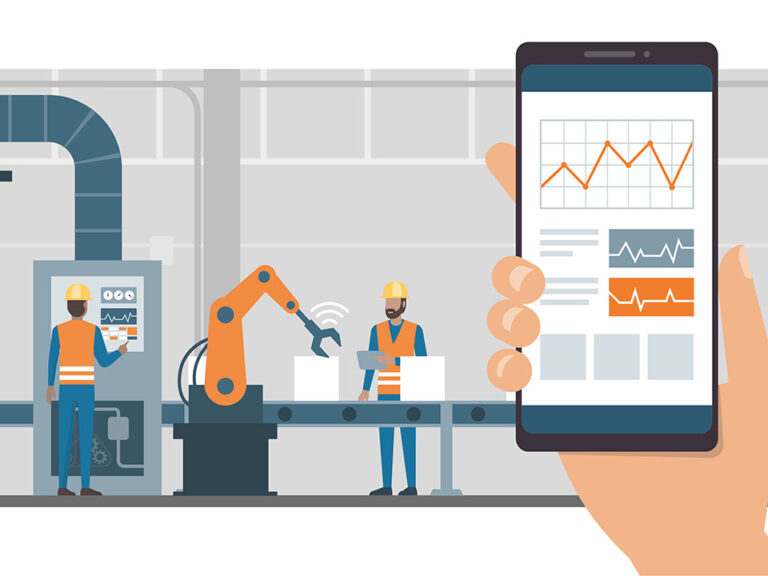Revolutionizing Manufacturing: Embracing AI and Automation on the Assembly Line.
The manufacturing industry is undergoing a seismic shift, thanks to the advent of artificial intelligence (AI) and automation technologies. These advancements are not merely incremental; they are revolutionizing the very essence of manufacturing processes, particularly along the assembly line. This transformation is characterized by increased efficiency, reduced costs, and improved product quality, fundamentally altering how products are designed, produced, and delivered. In this comprehensive exploration, we’ll delve into how AI and automation are reshaping the manufacturing landscape, offering insights into their impact and the future they promise.
Transforming the Assembly Line with AI and Automation
Enhancing Efficiency and Productivity
At the heart of the manufacturing process, automation technologies, combined with AI, are streamlining operations to an unprecedented degree. Robots and automated systems, guided by sophisticated AI algorithms, are now capable of performing tasks with precision and speed unmatched by human workers. This not only increases productivity but also minimizes the occurrence of defects and reduces the risk of downtime. By integrating these technologies into the assembly line, manufacturers can optimize production processes in real-time, adapting to changes swiftly and efficiently.
Improving Quality Control
AI’s capability to detect defects and ensure quality control is a game-changer for the manufacturing industry. Vision systems powered by artificial intelligence and machine learning algorithms can identify patterns, detect defects, and ensure that every product meets the highest standards. This meticulous attention to detail improves product quality, enhances customer satisfaction, and reduces costs associated with returns and repairs. Automation in manufacturing, particularly in quality control, signifies a leap towards excellence, setting new benchmarks for the industry.
Reducing Costs and Enhancing Competitiveness
One of the most compelling arguments for embracing AI and automation in manufacturing is the significant cost reduction it offers. By automating repetitive and labor-intensive tasks, manufacturers can reduce labor costs, minimize human error, and improve efficiency. Predictive maintenance, a key feature of AI applications in manufacturing, allows for the anticipation of equipment failures before they occur, thereby reducing unplanned downtime and associated costs. These savings can be redirected towards innovation, research, and development, giving companies a competitive edge in a rapidly evolving market.
The Future of Manufacturing: AI and Automation at the Forefront
Flexibility and Adaptation
The integration of AI and automation introduces a level of flexibility previously unseen in the manufacturing sector. Automated systems and robots can be reprogrammed and adapted to new tasks as product designs evolve, enabling manufacturers to respond to market demands with unprecedented agility. This adaptability is crucial in today’s fast-paced market, where customer preferences and technological advancements are constantly shifting.
Collaboration Between Humans and Robots
The future of manufacturing envisions a collaborative environment where humans and robots work side by side. This collaboration aims to combine the cognitive abilities of human workers with the precision and endurance of robots. Such a partnership enhances productivity and creativity, leading to innovation and the development of superior products. Moreover, automation and AI are creating new roles and opportunities within the manufacturing industry, focusing on oversight, maintenance, and the programming of automated systems.
Sustainability and Environmental Responsibility
AI and automation offer significant benefits in terms of sustainability and environmental responsibility. Automated systems optimize the use of resources, reduce waste, and improve energy efficiency, contributing to more sustainable production processes. Furthermore, AI can help manage supply chain logistics more effectively, reducing carbon emissions associated with transportation and inventory management.
Conclusion
AI and automation are just beginning to revolutionize manufacturing. As these technologies continue to evolve and mature, their potential to streamline manufacturing processes, enhance product quality, and reduce operational costs will only grow. The manufacturing sector is on the cusp of a new era that will be characterized by efficiency, innovation, and sustainability.
We invite our readers to explore further articles on our blog, diving into the myriad ways technology is transforming industries worldwide. Discover the latest trends, insights, and innovations that are shaping the future of manufacturing and beyond.
Frequently Asked Questions
How does AI improve manufacturing processes?
AI algorithms analyze data in real-time, optimizing production processes, reducing downtime through predictive maintenance, and ensuring quality control by detecting defects early.
What are the benefits of automation in manufacturing?
Automation increases efficiency, reduces costs by minimizing labor and operational expenses, improves product quality, and enables manufacturers to adapt quickly to market changes.
Can automation lead to job displacement?
While automation can replace certain repetitive tasks, it also creates new opportunities in areas such as system maintenance, programming, and supervision, shifting the workforce towards more complex and rewarding roles.
How does automation impact product quality?
Automation ensures consistent quality and reduces the incidence of human error, leading to products that consistently meet or exceed quality standards.
What role does predictive maintenance play in manufacturing?
Predictive maintenance uses data and AI algorithms to predict equipment failures before they happen, reducing unplanned downtime and extending the lifespan of machinery.
How can small manufacturers embrace AI and automation?
Small manufacturers can start with scalable automation solutions, focusing on areas with the highest ROI, such as automated quality control or inventory management, and gradually expand their use of technology as they realize the benefits.






